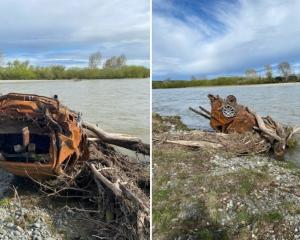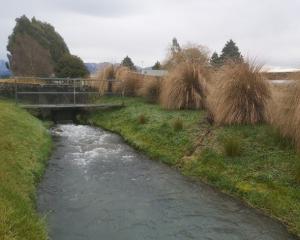West Coast mayors are optimistic that some of the more stringent rules proposed for their water services might be relaxed, after a meeting in Greymouth with the government’s water regulator.

Buller Mayor Jamie Cleine said the visit gave hope that some of the costliest and less achievable goals would be replaced with more pragmatic ones.
"We were looking at having to build full municipal style treatment plants for any supply with over 200 connections, but it looks as if that will change — and that could be a game-changer for some of our smaller northern Buller water services."
Buller was one of 27 councils previously ordered to ramp up protozoa protection in small community water supplies by June this year.
That would have meant building treatment plants, putting ratepayers in Waimangaroa, Little Wanganui and Mokihinui in the hole for millions of dollars, Mr Cleine said.
"The government now seems to be looking at more bespoke approach — so that might now apply to water supplies with say, 500 connections, rather than 200, which would make it more affordable."
The acceptable solution for the smaller communities might now be household filter and UV units, like the ones often used on lifestyle properties, Mr Cleine said.
There were also signs that the government might dial back some of the stricter requirements about discharge of treated wastewater.
"At the moment the default setting [for new sewerage plants] is you can’t discharge to water no matter how well you treat it; some councils have had to buy entire dairy farms to have land to discharge to — at eye-watering costs to the ratepayers, every year, forever."
It now seemed the government was moving towards a national standards approach, so that if councils could show treated wastewater met the standard, they would gain consent to discharge, Mr Cleine said.
But the problem of how small councils like Buller could afford to bring its larger water systems up to scratch, remained.
The council had to show MBIE how it planned to pay for the infrastructure it needed, either going it alone through its subsidiary company (CCO), or combining with other councils’ CCOs in the hope of achieving economy of scale.
A Tonkin and Taylor analysis had shown there was no economic benefit to be gained by merging the water assets and loans of the three West Coast District Councils, Mr Cleine said.
Grey District Mayor Tania Gibson said any easing of government regulatory pressures forcing councils to spend was welcome.
Her council’s drinking water and wastewater assets are in a reasonable state, but a $50 million stormwater bill was looming for deferred maintenance and pipe renewals, with only 9000 ratepayers to foot the bill.
"We all have these phenomenal costs coming at us and though we’re in a good position compared to a lot of other councils it’s not going to be easy."
Westland Mayor Helen Lash said her council had spent big money in the past three years, getting small community water supplies up to scratch.
But the challenges for her council were old pipes and the cost of a new sewage treatment plant for Hokitika.
The town’s present system pipes treated waste out to sea, and its resource consent runs out in four years.
"That’s the big one for us — it’s going to cost about $20m ... the pressure on ratepayers is huge, and we’ve said we can’t go there."
But said with the changes Taumata Arwai was considering, the council might be able to extend the current resource consent or modify the plan for a new plant, and the timeframe for action.
"We are going to have to wait for them to come out with their detail, and then look at how to use it for maximum gain without breaching consent or offending iwi."
The government’s new water monitoring rules were also an issue for Westland — with its frequent weather bombs and road closures.
"That’s given us a way forward for that — but in terms of amalgamating our water business with Grey — that won’t work for us. A joint CCO would cost more than it would save, and no larger councils want to join us."
— Lois Williams, Local Democracy Reporter
— LDR is local body journalism co-funded by RNZ and NZ On Air.












